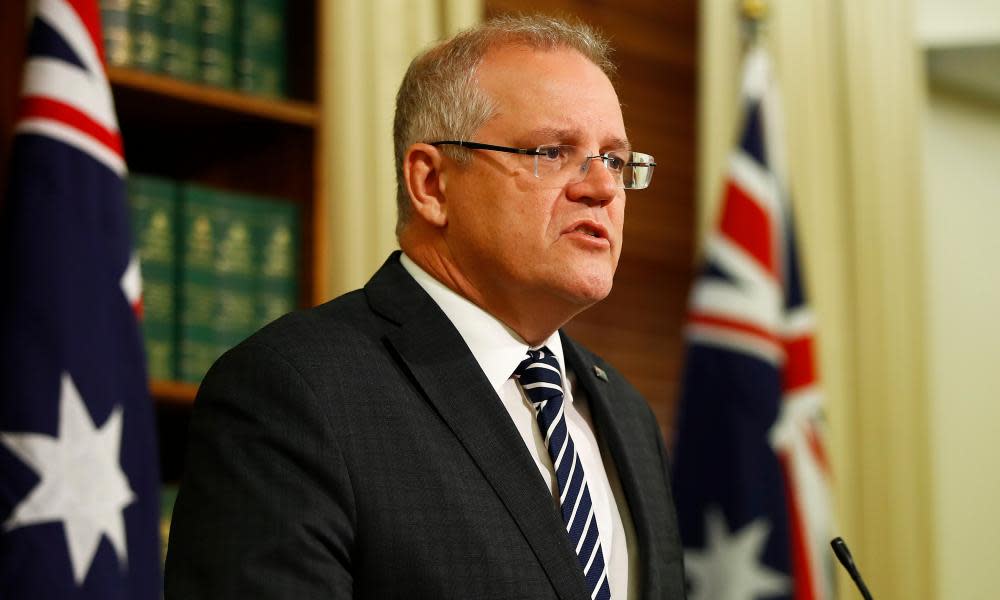Coalition rejects code of conduct for ministerial advisers

The Morrison government has rebuffed a recommendation that it establish a legislated code of conduct for ministerial advisers, professing itself happy with the status quo.
The recommendation to bring ministerial advisers into a clearer accountability framework is contained in the long awaited Thodey review of the public service, which was released by the prime minister, Scott Morrison, on Friday. The review also recommended that the government set guidance for ministerial offices to have at least half of ministerial policy advisers with public service experience.
The Thodey review referenced debates in recent years that ministerial advisers – who, controversially, exert significant influence without much external scrutiny – should be made more accountable through parliamentary scrutiny in the same way public servants are held to account by committees, like Senate estimates.
Related: Public service review did not look at cutting federal departments, official says
“Given the significant role they play in the Australian political system, the review considers it appropriate that the roles and responsibilities of ministerial advisers be formally recognised in a legislated code of conduct, with effective mechanisms for accountability and compliance with the code,” it said.
But the prime minister pushed back on both increased accountability and mandated public-sector experience. The government argued the current expectation was that “all ministerial staff to uphold the highest standards of integrity” and appropriate behaviour was already enforced.
“The government does not consider it necessary to amend the Members of Parliament (Staff) Act 1984 as proposed,” the official response said.
“The government, and successive governments before it, have maintained a high number of policy advisers with public service experience and the government does not consider it necessary to set a formal guidance about the number of advisers in each office who should have public service experience.”
The review, which was sought by Martin Parkinson, the former head of the prime minister’s department, and former prime minister Malcolm Turnbull, then reshaped and completed by Morrison, found the public service was “ill-prepared to grasp the opportunities of the future for several reasons. It lacks a clear unified purpose and is too internally focused”.
“There has been long-running underinvestment in the APS’s people, capital and digital capability, while siloed approaches, rigid hierarchies and bureaucratic rules create barriers to effective delivery,” the review said. “APS leaders do not always act as a unified team. Most of all, the APS is not changing fast enough to meet government expectations and deliver for Australians in a changing world”.
The review says the public service is not broken and “there are many examples of excellence across the service, but the APS is not performing at its best today and it is not ready for the big changes and challenges that Australia will face between now and 2030”.
The review made 40 recommendations to ensure the public service can evolve to be more fit for purpose. Morrison has endorsed most of the proposals and asked departmental heads to proceed with the changes.
Morrison said the government would invest an additional $15.1m to support the Secretaries Board and the Australian Public Service Commission to begin reforms.
The release of the review follows Morrison’s decision to abolish four federal departments in a public-sector restructure, which also included the sacking of five departmental secretaries: Kerri Hartland, Renée Leon, Mike Mrdak, Daryl Quinlivan and Heather Smith.

 Yahoo News
Yahoo News 
